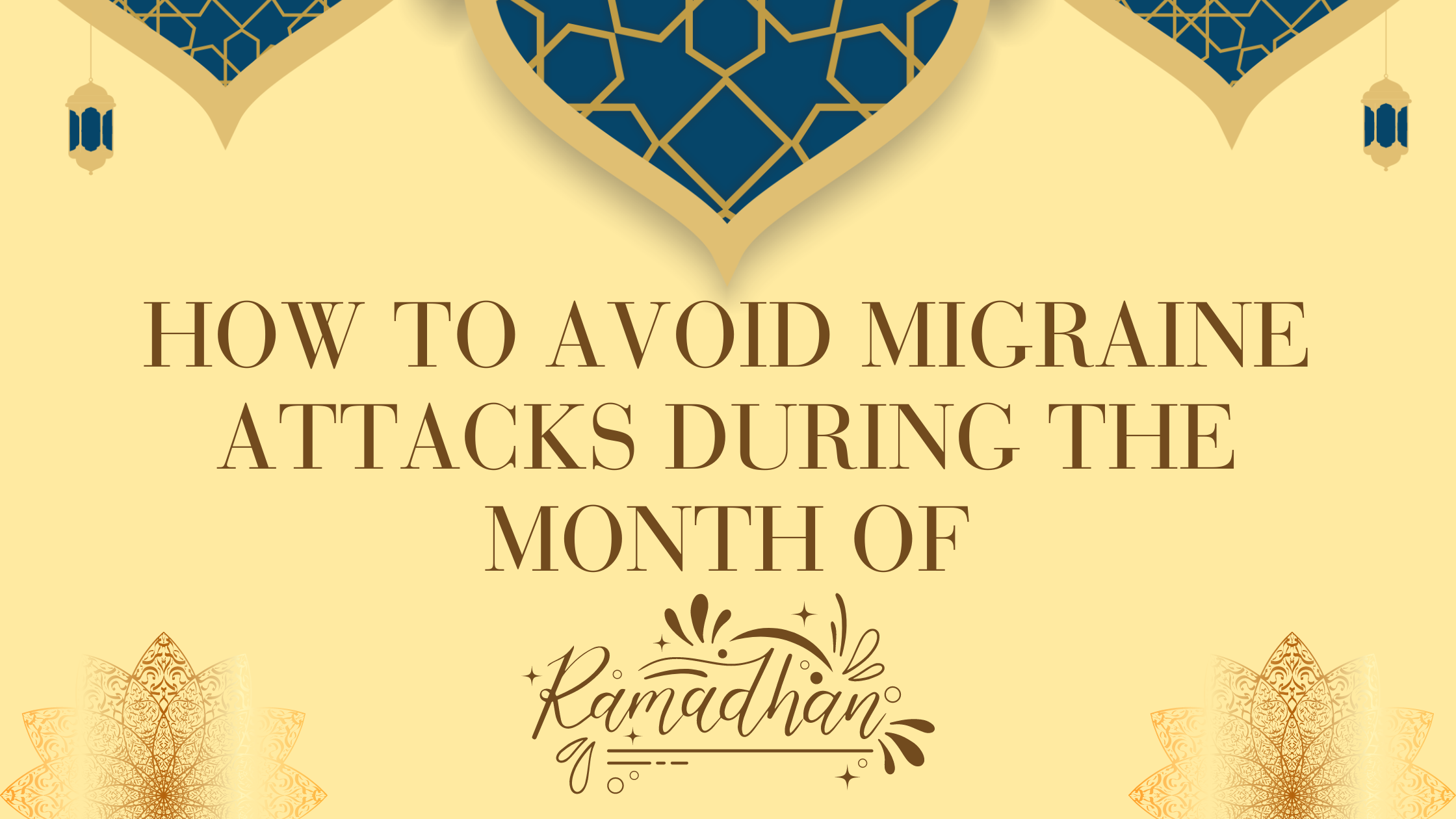How to Avoid Migraine Attacks During the Month of Ramadan
Posted on March 11 2024,

For millions of Muslims around the world, the month of Ramadan involves fasting from dawn until dusk. While this sacred practice holds immense spiritual meaning, the change in eating and drinking routine can sometimes trigger migraine attacks in those prone to them.
Source: https://thejournalofheadacheandpain.biomedcentral.com/articles/10.1007/s10194-010-0242-z
The migraine brain LOVES routine, and any change can increase the frequency, severity, or duration of migraine attacks.
Fortunately, there are several prophylactic steps you can take to minimize your risk of migraine attacks.
Stay Properly Hydrated
I know. I know. You’re tired of people telling you to drink water. However, when you are fasting, your body can become depleted of fluids. Though you can't drink during the daylight hours, it's crucial to hydrate well with water and other healthy beverages before sunrise and after sunset. Carry a reusable water bottle with you as a reminder to keep sipping throughout non-fasting times. You can also get fluids from foods with high water content like fruits and vegetables.
It may also be best to avoid exercise during this time. While exercise has been shown to be beneficial for migraine patients, exercising without the ability to replenish fluids may result in more frequent migraine attacks.
Avoid Known Food Triggers
Certain foods and drinks may result in migraine attacks for you. You likely know what they are. If you are fasting for Ramadan, you probably aren’t drinking alcoholic beverages, but foods like aged cheeses, or processed meats may be best to avoid during this time. When breaking your fast at iftar, opt for simple, plain foods without a lot of additives, preservatives, or potential trigger ingredients. Moreover, while it is common practice to eat dates at iftar, there are many cases where Muslims complain of this practice triggering migraine attacks. Dates and complex meals with multiple components may be better left for the pre-dawn suhoor.
Manage Stress and Prioritize Rest
Increased stress and lack of quality sleep can increase susceptibility to migraine attacks. Ramadan celebrates spiritual discipline through fasting, but often comes with hectic schedules of social gatherings, forgone naps, and later nights. Build in purposeful time for relaxation practices like deep breathing, gentle stretching, or just resting. Getting adequate sleep is also key as it is one of the most common migraine triggers. Try to have 7-8 good, quality hours of sleep per night.
Be Consistent with Meal Timing
Skipping meals or irregular eating patterns may trigger migraine attacks for some people. While fasting during Ramadan does disrupt the typical timing of meals during the day, you can help regulate your body's routine by trying to break your fast and eat the pre-dawn suhoor around the same times each day. Set reminders so you don't forget when you ate.
Monitor Caffeine Intake
If you regularly consume caffeinated beverages like tea, coffee, or soft drinks, don't quit cold turkey once Ramadan starts. Abruptly stopping caffeine can result in severe headaches and trigger migraine attacks. Instead, if you haven’t gradually reduced your caffeine intake in the weeks prior, just try having a reasonable amount of caffeine at suhoor.
Stay Cool When Possible
Heat exposure coupled with dehydration and diuretic effects of fasting may raise migraine attack risk. Spend time in cooler, air-conditioned places when you can. If the weather permits, wear lightweight, breathable fabrics. If necessary, take cool showers.
Medications
Discuss preventive and abortive medication options or adjusting your existing migraine treatment plan with your neurologist. Your neurologist can determine if medication is appropriate to avoid an increase in migraine frequency, duration, and severity during Ramadan.
Ask your Imam/Sheikh
Consider asking your Imam or Sheikh if you are allowed to skip Ramadan due to migraine disease. It is possible that those with health issues or disabilities may not be required to fast. Sometimes, instead of fasting, Muslims will be obligated to donate or feed the poor instead.
Good luck and Ramadan Kareem!
Fri, Apr 18, 25
Weather Conditions & Migraine Attacks: Is there a relationship?
This meta-analysis found that weather conditions, especially temperature and ambient pressure changes as well as increased levels of certain air pollutants (PM10, PM2.5, NO2, CO, and O3), are significantly associated...
Read MoreFri, Apr 18, 25
Understanding the Link Between Endometriosis and Migraine
Understanding the Link Between Endometriosis and Migraine: New systematic review and meta-analysis reveals a significant connection between these two conditions and what it means for patients.
Read More

